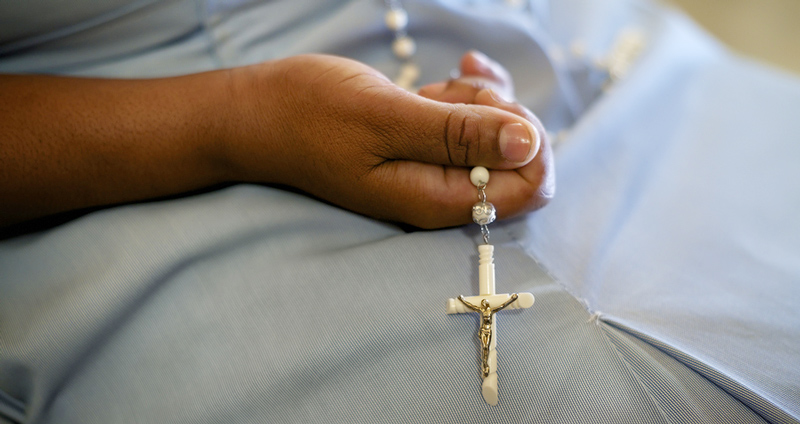
It’s an old, old Christian maxim: “Lex orandi, lex credendi.” Literally, this saying means “the law of praying is the law of believing.” The gist of it, as rendered in the 5th century A.D. by Prosper of Aquitane and quoted by Vincent of Lerins (both saints), is that the way we pray is the way we believe. It’s one of those statements that has a vice-versa quality to it.
A prime example would be Psalm 23, a favored selection for funerals. When we think about green pastures, still waters, repose and revival, we are consoled, and we picture heaven. Praying this Psalm reflects what we believe: that the Lord is a gentle shepherd, that he has prepared a place of rest and relief for us, and that new life is ours in death. But the way we pray not only testifies to the faith we already profess, but it also helps to form it. The psalm bolsters our hope and forms our expectations about everlasting life and the Beatific Vision.
Another example of how our prayer both reflects and forms what we believe was evident at a gathering in Walterboro in late May. St. Peter African Methodist Episcopal Church hosted the annual meeting of the South Carolina Christian Action Council. The Council’s membership focuses on prayer and action, and numerous Christian denominations are represented. At the May meeting there were Catholic, Episcopalian, Lutheran, Baptist, African Methodist Episcopal, Christian Methodist Episcopal, Quaker, United Methodist, and other denominations represented. The group gathered for prayer, an illuminating lecture, a planning meeting, and a book discussion.
The homilist for morning prayer was our Bishop Guglielmone, who spoke about discipleship, community, and how the practices of prayer, fasting, and almsgiving move us to work together on behalf of charity and justice. The Bishop spoke of our call to build a social order which promotes “survival of the weakest.” The lecture was offered by Dr. Amenti Sujai of Allen University, and her focus was how “the ancient path,” the wisdom of faith, leads us to go “where the good way lies” with mercy, balance, truthfulness, and integrity. The afternoon meeting dealt with common concerns and strategies to move politicians to act on behalf of education reform in our state, legislate against predatory lending, reduce gun violence, root out racism, and find equitable and merciful ways to solve immigration issues. The book study was Bryan Stevenson’s “Just Mercy,” which deals with criminal justice and its miscarriages.
Everything prayed and dealt with that May day sprang implicitly from the morning’s hymn “All Hail the Power of Jesus’ Name” and its remembrance that Christ is Lord and king. And the group’s common recitation of the so, so familiar Lord’s Prayer expressed the faith which shapes Christians: faith that the Kingdom of God is not just our hoped-for afterlife but also realized when we join together so that God’s will be done on earth as it is in heaven.
We have said the Our Father more times than we can count. It becomes part of our flesh and bones as we pray it, believe it, and act on it. God’s Kingdom, after all, is our law.




